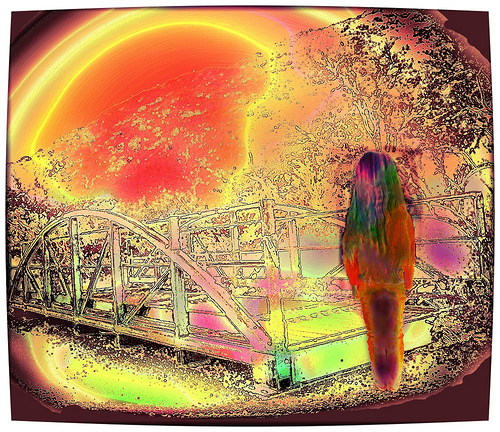
The awareness of our mortality is one of the most fundamental aspects of the human experience. The idea that we will one day cease to exist can provoke profound anxiety, influencing how we think, feel, and act in ways that often go unnoticed. This existential fear of death, or death anxiety, is a core concern in a psychological framework called Terror Management Theory (TMT). In response to this fear, Terror Management Therapy has emerged as a therapeutic approach aimed at helping individuals manage the anxiety associated with their mortality and live more meaningful, fulfilling lives.
In this blog post, we’ll explore the principles behind Terror Management Theory, how death anxiety affects our behaviours, and how Terror Management Therapy can help people confront their fear of death in healthy, constructive ways.
Beyond the typical scope of death anxiety, there are important psychological and social dimensions that impact how we manage this existential fear. Depression and prejudice, two significant issues many people face, can deeply influence how individuals process their fear of mortality and how they behave in response. In this blog post, we’ll also dive into how depression and prejudice intersect with Terror Management Therapy and affect how people cope with the awareness of death.
1. What is Terror Management Theory?
Terror Management Theory (TMT), first introduced by social psychologists in the 1980s, is based on the idea that humans are uniquely aware of their own mortality. This awareness, combined with the instinct for self-preservation, creates a tension known as terror—a deep, often subconscious fear of death. According to TMT, much of human behaviour is driven by efforts to manage this existential terror.
- Cultural Worldviews: TMT suggests that people create and adhere to cultural worldviews—religions, belief systems, traditions, and values—that provide a sense of order, meaning, and permanence. These worldviews offer comfort by giving individuals a way to transcend death, either through literal afterlife beliefs (heaven, reincarnation) or symbolic immortality (leaving a lasting legacy, making a contribution to society).
- Self-Esteem as a Buffer: Self-esteem, in TMT, plays a vital role in mitigating death anxiety. When people feel they are living up to the standards of their culture or worldview, they feel more valuable and less vulnerable to existential fear. By enhancing self-esteem, individuals can reduce the anxiety associated with mortality.
2. The Role of Depression in Terror Management Therapy
Depression can severely impact how individuals respond to death anxiety, often making it more difficult to find the sense of purpose, meaning, and self-esteem that buffers against existential fears. In Terror Management Therapy, depression must be addressed because it not only diminishes self-worth but also amplifies feelings of hopelessness and despair, which can exacerbate the fear of death.
How Depression Affects Terror Management:
- Low Self-Esteem: Depression undermines self-esteem, which is a core defense against death anxiety in TMT. When someone is depressed, they may feel unworthy, incompetent, or disconnected from their cultural worldviews, making it harder to find meaning in life. Without this sense of worth, the existential terror of death becomes more overwhelming, leading to a cycle of despair.
- Loss of Meaning: Depression often robs individuals of a sense of purpose or meaning. When someone struggles to see value in their life, managing the fear of death becomes even more challenging. The lack of connection to broader cultural beliefs or personal goals leaves them vulnerable to existential dread, as they may struggle to see how their life contributes to something greater or transcends death in any way.
- Cognitive Distortions: Individuals suffering from depression may experience cognitive distortions—patterns of negative thinking that reinforce their feelings of hopelessness. These distortions can make death anxiety even more intense, as the depressed individual may catastrophize their fears, believing that their life is meaningless or that death will only bring further isolation.
How Terror Management Therapy Can Help:
TMTx can be particularly effective in helping people with depression by addressing both death anxiety and the depressive symptoms that fuel it. Here’s how:
- Restoring Self-Esteem: TMTx focuses on building genuine self-esteem, helping individuals reconnect with their values and accomplishments, which in turn helps buffer against death anxiety. By fostering small successes and reinforcing positive self-views, the therapy helps individuals regain a sense of worth.
- Finding Purpose: By encouraging clients to explore their personal beliefs, values, and passions, TMTx can guide individuals out of the existential void created by depression. It helps people uncover or rediscover what gives their lives meaning, which can help them transcend the fear of death.
- Challenging Negative Thought Patterns: TMTx also works by challenging the negative thought patterns that often accompany depression, helping individuals understand how these thoughts reinforce their death anxiety. By reshaping their thinking, clients can develop healthier coping mechanisms that reduce both depression and the fear of death.
3. The Role of Prejudice in Terror Management Therapy
Prejudice is another significant factor that comes into play when discussing death anxiety. According to TMT, when people are reminded of their mortality—what is often called a “mortality salience” reminder—they are more likely to cling tightly to their cultural worldviews and react negatively to those who hold different beliefs or belong to different groups. This is because differing perspectives threaten the sense of meaning and permanence provided by one’s worldview. In other words, when faced with the reality of death, individuals may become more defensive of their own cultural identity and more hostile toward others, leading to increased prejudice.
How Prejudice is Tied to Death Anxiety:
- In-Group Bias: One way people cope with the terror of death is by strongly identifying with their cultural group or “in-group.” When mortality is on their minds, people tend to feel more strongly connected to those who share their worldview, leading to in-group favouritism. This bond can lead to prejudice against out-groups—people who are seen as different or who hold opposing beliefs.
- Cultural Worldview Defense: When people are reminded of death, they often react by defending their cultural worldviews more aggressively. This can manifest in negative behaviours such as stereotyping, discrimination, or hostility toward individuals or groups that challenge their beliefs. These defensive reactions are attempts to reinforce the individual’s sense of meaning, order, and immortality.
- Dehumanization: Death anxiety can sometimes cause people to dehumanize others, seeing them as less valuable or even threatening. This dehumanization can escalate into prejudice and exclusion, creating societal divisions and conflicts.
How Terror Management Therapy Can Help:
TMTx can address the root causes of prejudice by helping individuals recognize how their fear of death influences their attitudes toward others. By raising awareness of this connection, TMTx can reduce prejudiced thinking and foster a more inclusive and tolerant mindset.
- Challenging Prejudiced Beliefs: TMTx encourages clients to examine the subconscious ways in which death anxiety influences their views of others. By exploring why they feel threatened by different cultural perspectives, individuals can start to challenge these automatic reactions and reduce prejudice.
- Promoting Empathy: By helping clients confront their own fears of mortality, TMTx opens the door to greater empathy for others who are also dealing with the human condition of confronting death. Understanding that everyone grapples with the same existential fears can lead to more compassionate and less defensive responses to others.
- Expanding Worldview: TMTx can help clients broaden their worldview, encouraging them to explore how different cultures or beliefs offer valuable perspectives on life and death. This expansion helps individuals feel less threatened by alternative perspectives, reducing hostility and prejudice.
4. The Benefits of Integrating Depression and Prejudice in TMTx
By addressing both depression and prejudice, Terror Management Therapy provides a holistic approach to helping individuals navigate their death anxiety in ways that promote personal well-being and healthier social interactions.
- For Depression: TMTx can help individuals reclaim their sense of self-worth, find meaning in their lives, and reduce the despair associated with both depression and the awareness of mortality. This promotes long-term emotional resilience.
- For Prejudice: By making the link between death anxiety and defensive attitudes toward others clear, TMTx offers tools to combat prejudice, encouraging greater tolerance and understanding across different worldviews and cultures.
5. The Role of Death Anxiety in Everyday Life
Death anxiety operates on both conscious and unconscious levels, influencing how we behave in various aspects of life—often without us realizing it. According to TMT, many of our daily actions are attempts to manage this underlying fear of death. Here are some ways death anxiety can manifest in everyday life:
- Pursuit of Achievement and Success: Many people seek success, recognition, and achievement as a way to symbolically transcend death. By making a mark on the world—whether through career accomplishments, personal achievements, or creative expression—individuals feel they can leave a lasting legacy, easing the fear of mortality.
- Adherence to Cultural Norms: People tend to conform to their culture’s rules and norms as a way to find meaning and purpose. By following the ideals set by religion, society, or community, individuals gain a sense of belonging and purpose, which helps to buffer against existential fear.
- Avoidance of Death-Related Topics: Many people avoid thinking about death or engaging with conversations about mortality, as it triggers discomfort. This avoidance can lead to decisions driven by fear—such as clinging to materialism, avoiding risk, or seeking distractions that offer temporary relief from deeper existential thoughts.
- Conflict with Other Worldviews: Terror Management Theory suggests that when confronted with different belief systems or worldviews, people can become defensive or hostile because these alternative perspectives challenge their own death-denying structures. This is why cultural, religious, and ideological conflicts can be so emotionally charged—they threaten the systems we use to manage our fear of death.
6. What is Terror Management Therapy?
Terror Management Therapy (TMTx) is a therapeutic approach rooted in the principles of Terror Management Theory. It is designed to help individuals explore and confront their death anxiety in a way that promotes personal growth, meaning, and resilience. By addressing death anxiety directly, TMTx aims to reduce the subconscious terror that can lead to defensive behaviours, stress, and existential dread.
Here are some key elements of Terror Management Therapy:
- Confronting Death Anxiety: One of the primary goals of TMTx is to help individuals face their fear of death directly. This involves discussing mortality openly, reflecting on personal beliefs about death, and examining how fear of death influences life choices. By bringing death anxiety into conscious awareness, clients can begin to work through it in a healthier way.
- Exploring Cultural Worldviews and Beliefs: TMTx encourages individuals to examine the cultural worldviews and belief systems they rely on to manage death anxiety. By understanding how these worldviews shape their identity and actions, clients can become more aware of how much of their behaviour is driven by a need for death denial. This self-awareness allows individuals to make more authentic choices.
- Building Self-Esteem Through Meaningful Actions: TMTx places emphasis on building self-esteem through genuine, meaningful activities rather than through external validation. Clients are encouraged to reflect on their values, passions, and life goals. By aligning their actions with their true selves—rather than societal expectations—individuals can create a sense of purpose that transcends their fear of death.
- Fostering Acceptance of Mortality: Acceptance is a central tenet of TMTx. While fear of death is natural, the goal of therapy is to help clients embrace the reality of mortality without allowing it to dominate their thinking. This acceptance can lead to a more peaceful, purposeful life where individuals focus on the present moment and engage in life-affirming activities.
7.The Benefits of Terror Management Therapy
Terror Management Therapy offers several benefits for individuals struggling with existential anxiety, life dissatisfaction, or fear of death. Here are a few of the ways TMTx can improve psychological well-being:
- Reduced Anxiety and Stress: By addressing the root cause of existential anxiety, TMTx can help individuals experience lower levels of stress and anxiety. When people stop avoiding thoughts of death and instead develop healthy ways to cope with them, they can live with greater emotional ease.
- Improved Relationships: As people become more aware of their mortality and how it influences their behaviours, they may be able to foster more meaningful, authentic relationships. They can prioritize deeper connections rather than superficial validation, leading to stronger, more fulfilling bonds.
- Increased Life Satisfaction: Through reflection on personal values, goals, and mortality, individuals are often inspired to live more intentionally. By pursuing actions aligned with their true selves, they experience a greater sense of satisfaction and purpose in life.
- Greater Resilience: TMTx helps individuals develop resilience in the face of death and life’s challenges. By confronting and accepting death anxiety, people can better navigate the inevitable losses and uncertainties of life with emotional strength and flexibility.
8. Who Can Benefit from Terror Management Therapy?
TMTx can be beneficial for a wide range of individuals, especially those who experience existential anxiety, fear of death, or a lack of meaning in life. It can also help people who are:
- Struggling with life transitions, such as retirement, ageing, or significant loss.
- Dealing with midlife crises or feelings of purposelessness.
- Experiencing intense fears of death or illness, including those facing terminal diagnoses.
- Having difficulty coping with cultural or religious conflicts that challenge their worldview.
- Seeking to deepen their understanding of life purpose and identity.
Conclusion: Embracing Life by Confronting Death
While death anxiety is a natural part of being human, it doesn’t have to control your life. Terror Management Therapy offers a powerful way to confront your fear of mortality head-on, helping you understand how it influences your behaviours and choices. By exploring your beliefs, accepting your mortality, and finding meaningful ways to live, you can reduce the grip of existential fear and move forward with a sense of purpose and inner peace.
In the end, addressing death anxiety is about learning to embrace life fully—living with intention, nurturing relationships, and creating a legacy that resonates beyond the fear of death. Through Terror Management Therapy, you can learn to live more meaningfully, knowing that death is simply part of the journey.




